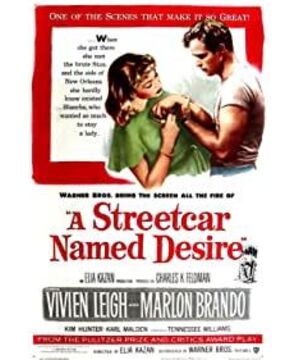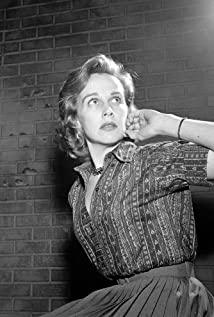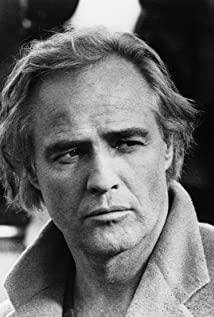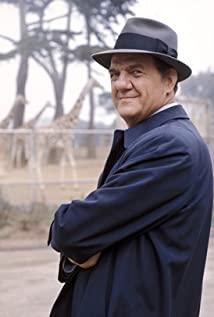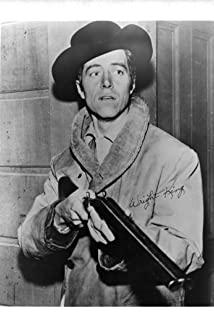American dramatic realism in the 1950s (cares about social issues; actors perform at the center, connecting events with emotional fluctuations; scenes are closed, concentrated, and dark-tone photography lighting; Freud's thoughts affect character settings). Emphasize light and shadow. Subjective sound effects express trance, confusion (120'Blanche hears echoes of speech). Experience Vivien Leigh and Method Brando. The opening lines are amazing at the first sentence of "One Hundred Years of Solitude": They told me to take a streetcar named Desire and then transfer to a one called Cemeteries, and ride six blocks and get off at Elysian Fields! The legacy of the Civil War, the depressed society, the idealistic South and the industrially alienated North (Blanche-the bankrupt southern manor owner who was indulged in the past, Stanley-the emerging worker of the north who put his interests first). The juxtaposition of queerness and women, and the failure of "de-homosexualization" (Blanche's late husband's obscure side profile is a modification forced by censorship and de-homosexualization, but "absence" creates "presence" and instead produces new ones off-screen. cultural significance). Impression: 59' "I'm going to charge for the night star." "Oh, I didn't know the stars started charging." "That's a newspaper, ma'am." 122' Whoever you are, I have always depend on the kindness Of strangers. Blanche's departure is similar to Norma's departure in "Sunset Boulevard". The characters are already down and out but nostalgic, and their emotions have changed from frantic to calm, and the end has slipped to a sad fate.
Brando is so sexy, and even that doesn't erase my distaste for Stanley's gruff characters. In addition, Vivien Leigh has been in a mental hospital because of her bipolar disorder as Blanche, which is distressing.
View more about A Streetcar Named Desire reviews


